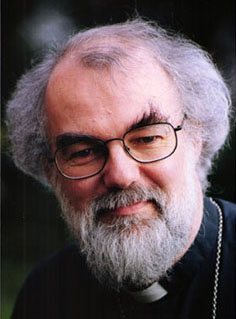
As on so many issues that divide left-wing and right-wing Christians, the Bible seems frustratingly pliable when it comes to the issue of property rights. Conservative Christians like to assert that the Bible takes private property for granted, that the Eighth Commandment demonstrates it to be a “divine institution” or a “sacred right,” and that the many examples of wealthy patriarchs prove not only private property, but large accumulations of it, have divine sanction. Those more inclined toward some kind of Christian socialism like to point out Jesus’s very harsh strictures on the accumulation of wealth and the assertion of private property rights, and the early Jerusalem community’s practice of “having all things in common.” As so often happens, we seem to be faced with something of an Old Testament/New Testament divide, in which the Old Testament bolsters a conservative agenda, and the New Testament a liberal one. Is the Bible thus divided against itself?
With conservative and evangelical ethicists falling dramatically off the anti-gay-marriage bandwagon at a remarkable pace, superstar theologian David Bentley Hart’s essay “Is, Ought, and Nature’s Laws” last month in First Things came like a spark on a dry pile of tinder. Challenging the optimism of many contemporary Catholic thinkers (and recently many evangelical thinkers as well) that natural law arguments can provide a convincing, broadly-appealing basis for opposition to gay marriage legislation, Hart provoked a tide of responses and counter-responses in the blogosphere, which continues even now. For at stake in Hart’s remarks were not merely how conservatives should and shouldn’t engage in gay marriage debates, but the nature of the public square and of natural law itself, the foundation upon which so much Christian political theory has been built over the centuries.
Rather than attempting to weigh in with yet another contribution to the wide-ranging debate, I will merely seek to provide here something of an annotated catalogue of the more significant blasts and counter-blasts

Sometimes it makes sense to concentrate on a single concept in order to understand the contribution of an individual to the history of ideas. This may mean artificially reducing the complexity of a person’s thought and vision. It may, however, be helpful in finding a hermeneutic ‘entry door’ into those thoughts and visions.
I have come to the (preliminary) conclusion that “Decentering” is such a key concept in the writing of Rowan Williams. “Decentering” features in Williams’ work both on questions of individual spirituality and matters of collective well-being. In Williams’ approach the individual and collective dimensions are not to be viewed separately but together. Individual choices bear upon the order of state and society and collective decisions provide the framework for the welfare of individuals and their ‘pursuit of happiness’.
